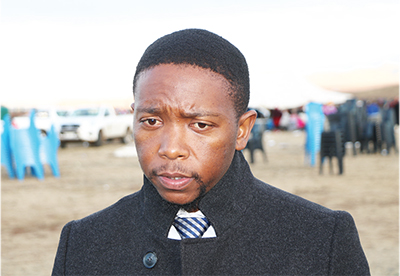By: Thoboloko Ntšonyane
MASERU – Following an announcement by the Lesotho Highlands Development Authority (LHDA) regarding the scheduled maintenance and repair works the Authority states that during this period, there will be no electricity generation.
The transfer of water to South Africa (SA) will also be suspended.
LHDA is set to carry out routine maintenance work from October this year to March 31st, 2025.
This maintenance is on the Lesotho Highlands Water Project tunnel that connects Katse Dam and ‘Muela Dam,
While this temporary shutdown might have an impact in some parts of SA that receive water from Lesotho, LHDA assures Basotho and South Africans that the organization has taken proactive steps to minimize the impact this may cause to both nations.
LHDA’s Public Relations (PR) Manager Mpho Brown says in a normal year of operation, the project delivers 780 Million Cubic Meters (MCM) of water to South Africa and generates atleast M1.6 billion in royalties’ revenue.
To counter this gap during the maintenance period where Lesotho will not be transferring water to SA, Brown says LHDA is increasing the rate of water delivery to SA thus delivering larger quantities of water ahead of the outage.
He says more will be delivered after to make up for the six months of outage.
“For example, whilst in normal times the project would generate over M110 million per month in royalties, in 2024 so far, we have delivered enough quantities to generate over M280 million every month consistently.
“By October 2024 when the outage begins, we will have delivered approximately 700 MCM already, which means most of this year’s royalties’ revenue will have been collected already to minimize impact, with any remainder to be delivered after the outage to make up for the losses,” he stresses.
LHDA’s PR Manager goes on to say that maintenance work implies that there will be economic activity that is expected to take place on the places around the project site.
“The impact that we expect is that there will be people from the neighboring communities in Lesotho who will likely get employment in the maintenance work, as well as an increase in demand for services from local businesses due to the increased activity and presence of people,” remarks Brown.
He continues: “We do not foresee any major or unwelcome disruptions to the immediate communities or businesses in the areas of the work.”
Lessons from the previous maintenance exercise that LHDA undertook include the importance of early and robust engagement with all key stakeholders.
As early as 2019 when tunnel inspections were carried out, LHDA was informed that it will have to carry out the routine maintenance and repairs exercise in five years.
The Authority then began notifying all relevant parties including the relevant government ministries and agencies who had to ensure that preparations begin early for the work.
Brown adds: “This time around, we also kicked off public announcement and notification of the work early enough to ensure that there is understanding of the importance of the maintenance work, as well as a good understanding of what it means for people’s everyday lives.”
He says safety considerations are of the “highest importance” in an exercise like this, and all learning relating to safety from past maintenance work is taken into consideration.
LHDA will use the opportunity created by the Tunnels Outage to undertake other routine maintenance on the ‘Muela Hydropower Station and other related components.
As this is a scheduled maintenance, LHDA will not downsize its workers.
This planned maintenance will force the Lesotho Electricity Company (LEC) to procure more power from SA and Mozambique.
Meanwhile, in February, the Minister of Energy, Prof. Nqosa Mahao, informed this publication that there would be no load shedding due to the maintenance and repair exercise, which will result in the suspension of electricity generation for six months.


